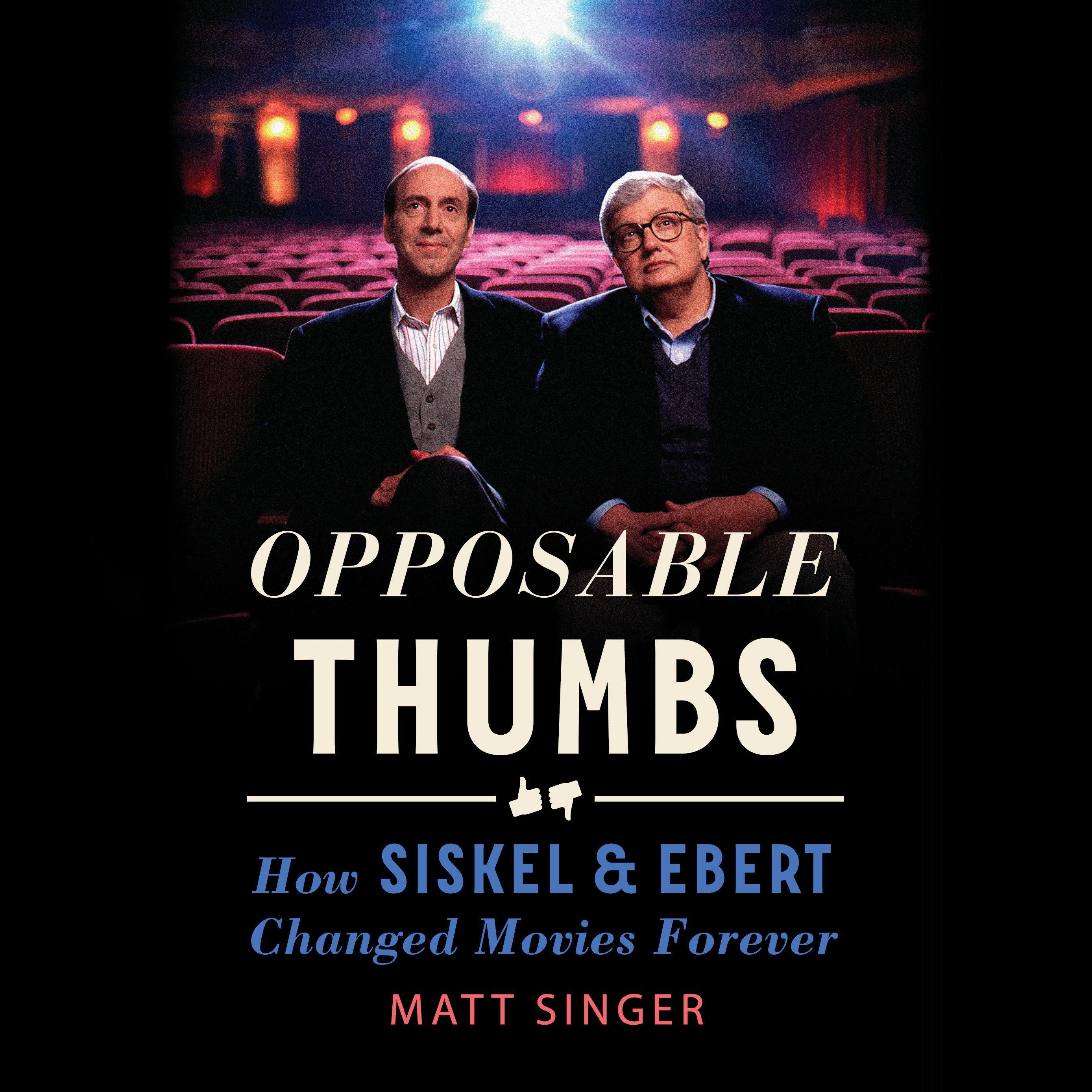
Opposable Thumbs
By
Matt Singer
Read by
Matt Singer
Release:
10/24/2023
Runtime:
9h 36m
Unabridged
Quantity:
The role of Gene Siskel and Roger Ebert in changing film criticism may often have been simplified to their signature phrase 'Two Thumbs Up,' but the glory and value of this knowledgeable, deeply entertaining history of their partnership is that it's always expansive, never reductive. We get so much here—a dual portrait of two big personalities at war with one another both as critics and as men, a history of the invention and reinvention of a seminal TV series, and a deep sense of the abiding love for movies that coursed through their work and that courses through Matt Singer's.
Mark Harris, author of Mike Nichols: A Life
Once upon a time, if you wanted to know if a movie was worth seeing, you didn’t check out Rotten Tomatoes or IMDB.
You asked whether Siskel & Ebert had given it “two thumbs up.”
On a cold Saturday afternoon in 1975, two men (who had known each other for eight years before they’d ever exchanged a word) met for lunch in a Chicago pub. Gene Siskel was the film critic for the Chicago Tribune. Roger Ebert had recently won the Pulitzer Prize—the first ever awarded to a film critic—for his work at the Chicago Sun-Times. To say they despised each other was an understatement.
When they reluctantly agreed to collaborate on a new movie review show with PBS, there was at least as much sparring off-camera as on. No decision—from which films to cover to who would read the lead review to how to pronounce foreign titles—was made without conflict, but their often-antagonistic partnership (which later transformed into genuine friendship) made for great television. In the years that followed, their signature “Two thumbs up!” would become the most trusted critical brand in Hollywood.
In Opposable Thumbs, award-winning editor and film critic Matt Singer eavesdrops on their iconic balcony set, detailing their rise from making a few hundred dollars a week on local Chicago PBS to securing multimillion-dollar contracts for a syndicated series (a move that convinced a young local host named Oprah Winfrey to do the same). Their partnership was cut short when Gene Siskel passed away in February of 1999 after a battle with brain cancer that he’d kept secret from everyone outside his immediate family—including Roger Ebert, who never got to say goodbye to his longtime partner. But their influence on in the way we talk about (and think about) movies continues to this day.
Photographer/© ABC/Getty Images.
You asked whether Siskel & Ebert had given it “two thumbs up.”
On a cold Saturday afternoon in 1975, two men (who had known each other for eight years before they’d ever exchanged a word) met for lunch in a Chicago pub. Gene Siskel was the film critic for the Chicago Tribune. Roger Ebert had recently won the Pulitzer Prize—the first ever awarded to a film critic—for his work at the Chicago Sun-Times. To say they despised each other was an understatement.
When they reluctantly agreed to collaborate on a new movie review show with PBS, there was at least as much sparring off-camera as on. No decision—from which films to cover to who would read the lead review to how to pronounce foreign titles—was made without conflict, but their often-antagonistic partnership (which later transformed into genuine friendship) made for great television. In the years that followed, their signature “Two thumbs up!” would become the most trusted critical brand in Hollywood.
In Opposable Thumbs, award-winning editor and film critic Matt Singer eavesdrops on their iconic balcony set, detailing their rise from making a few hundred dollars a week on local Chicago PBS to securing multimillion-dollar contracts for a syndicated series (a move that convinced a young local host named Oprah Winfrey to do the same). Their partnership was cut short when Gene Siskel passed away in February of 1999 after a battle with brain cancer that he’d kept secret from everyone outside his immediate family—including Roger Ebert, who never got to say goodbye to his longtime partner. But their influence on in the way we talk about (and think about) movies continues to this day.
Photographer/© ABC/Getty Images.
Release:
2023-10-24
Runtime:
9h 36m
Format:
audio
Weight:
0.0 lb
Language:
English
ISBN:
9780593787526
Publisher:
Penguin Random House
Praise
